|
|
2005.5
Fidelio |
Music by Ludwig van Beethoven (1805-1814)
Libretto by J.v. Sonnleithner (The 1st edition) / G.v.Traitschke (The
3rd edition)
OPERA HOUSE
6 performances
May 28(Sat)3:00pm, 31(Tue)6:30pm, June 2 (Thu)7:00pm, 4(Sat)3:00pm,
7(Tue)6:30pm, 9(Thu)2:00pm 2005
Approximate running time: 3 hours with 1 intermission |
| Conductor: Michael Boder
Director and Scenery Design: Marco Auturo Marelli
Costume Design: Dagmar Niefind-Marelli
<MAIN CAST>
Leonore: Gabriele Fontana
Florestan: Thomas Moser
Don Pizarro: Peteris Eglitis
Rocco: Hans Tschammer
Mrzelline: Mizushima Ikumu |
|
| |
| Background |
| Fidelio oder Die eheliche Liebe (Fidelio, or the
Triumph of Married Love) is the only opera written by Beethoven, the
great master of music. Its 1805 premiere in Vienna, which was under
occupation by Napoleon’s French army, resulted in failure. After
subsequent repeated revisions, the third version was performed and
achieved unqualified success in 1814. After the model of the then
popular “rescue drama,” Beethoven adapted J.N. Bouilly’s
play Léonore, ou L’Amour Conjugal (Leonore,
or Conjugal Love) for the opera in the format of singspiel (song-play),
the tradition of German opera. The work reflects Beethoven’s
philosophy and ideas, using music to express the themes of justice,
virtue and true love. Since the magnificent music is written as instrumental
music, and not as vocal music, the opera includes many challenging
arias, including Leonore’s “Abscheulicher! (Abominable
man!)” and Florestan’s “Gott! Welch’ Dunkel
hier (God! How dark it is here!),” which require an extremely
high level of musical technique from solemn to light expressions.
The overture which was rewritten every time the opera was revised,
the grand chorus just before the fall of the curtain which reminds
us of the chorus from the Ninth Symphony and the orchestration that
produces dignified and powerful sounds all testify to the natural
talent of Beethoven. The gifted conductor Michael Boder, who has an
established reputation in contemporary music, as well as the cast
of powerful singers, including G. Fontana and Thomas Moser, will take
on the challenge of producing this great work by Beethoven. |
| Synopsis |
| The setting is a Spanish state prison in a suburb of Seville in
the middle of the 18th century. Don Pizarro, the governor of the prison,
has unjustly imprisoned Florestan, his political enemy, when the latter
inquired closely into the former’s wrongdoings. Florestan’s
wife Leonore discovers that her husband, who has suddenly disappeared,
is confined in this prison. In order to rescue her husband, she disguises
herself as a boy and names herself Fidelio, and she waits for a chance
to rescue him while working as an assistant to the jailer Rocco. Impressed
with the sincere way Fidelio works, Rocco wants him to marry her daughter
Marzelline. One day, Don Fernando, the King’s justice minister,
comes to the prison for inspection. Fearing that his own wrongdoing
may be revealed, Pizzaro orders Rocco to execute Florestan immediately.
In order to dig a grave for Florestan, Rocco descends to the dungeon
with Leonore. She discovers her husband weakened from captivity. When
the preparations have been made, Pizzaro appears and tries to stab
Florestan, Leonore reveals herself and protects her husband at the
risk of her own life. The inspecting minister then arrives. An old
friend of the prisoner, the minister rejoices in their reunion, praises
Leonore’s courageous act and arrests Pizzaro. Released from
imprisonment, Florestan, together with his wife and other people,
sings in praise of God’s fair judgment and the power of love.
All are enveloped in rejoice. |
|
| |
| |
<Conductor> |
|
<Director> |
|
| |
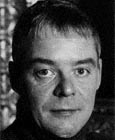 |
|
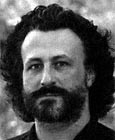 |
|
| |
Michael Boder |
|
Marco Arturo Marelli |
|
| <Main Cast> |
 |
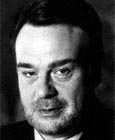 |
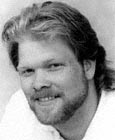 |
| Gabriele Fontana |
Thomas Moser |
Peteris Eglitis |
| |
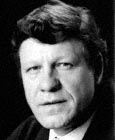 |
|
 |
|
| |
Hans Tchammer |
|
Mizushima Ikumu |
|
|






